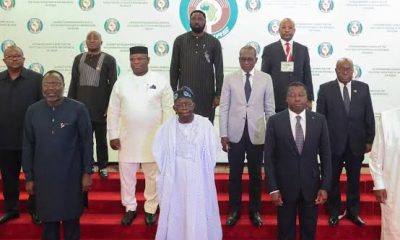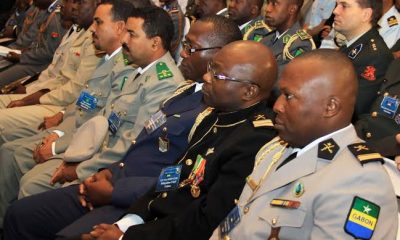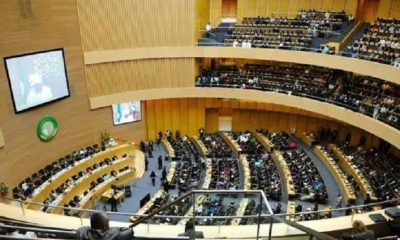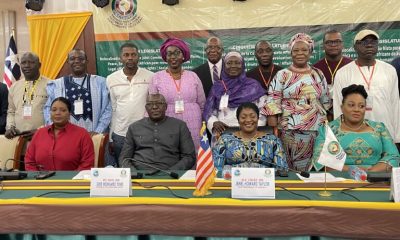Foreign
Niger: ECOWAS Parliament divided over military intervention as option

The ECOWAS Parliament was on Saturday divided over taking military action as an option aimed at tackling the political situation in Niger Republic and restoring civil rule there.
Some members made called for actions that would nip in the bud military incursion into politics within the region, while others identified diplomacy and dialogue as the best approaches to tackling the crisis.
No fewer than 22 parliamentarians participated in the virtual extraordinary meeting to discuss the political crisis in Niger.
Some members who were against military intervention highlighted the economic woes that the people of Niger could experience if invaded.
Ali Djibo, from Niger Republic said already at least 9,000 schools had been closed down owing to the crisis.
“War will only compound the economic woes the peoples of the sub-region are already going through.
“As we speak, over a thousand trucks, loaded with goods, are stranded at the border.
“If a coup happened in Nigeria or Cote’d’Iviore tomorrow, where’s the ECOWAS going to mobilise troops to fight the Nigerian or Ivorian military? How many borders are we going to close?
“We must also bear in mind that if we’re applying the ECOWAS treaty, it should be applicable to all.”
Awaji-Inombek Dagomie Abiante (Rivers), ECOWAS must pay keen attention and treat the root causes of coups in ECOWAS countries
Members of the ECOWAS Parliament making a case for military intervention in Niger said diplomacy had contributed in no small measure to the increase in the spate of military takeover of government in the West African sub-region.
Contributing, Adebayo Balogun, posited that ECOWAS leaders were proposing military action to remove the junta. not clamouring for a fully-fledged war.
He recalled that Niger was a signatory to ECOWAS’ revised protocol on non-military intervention.
Also, Bashir Dawodu expressed the belief that the body should open itself up to the possibility of a military option and apply pressure on the putschists while exploring dialogue.
Foreign
3 teens arrested in Germany for allegedly plotting terror attack
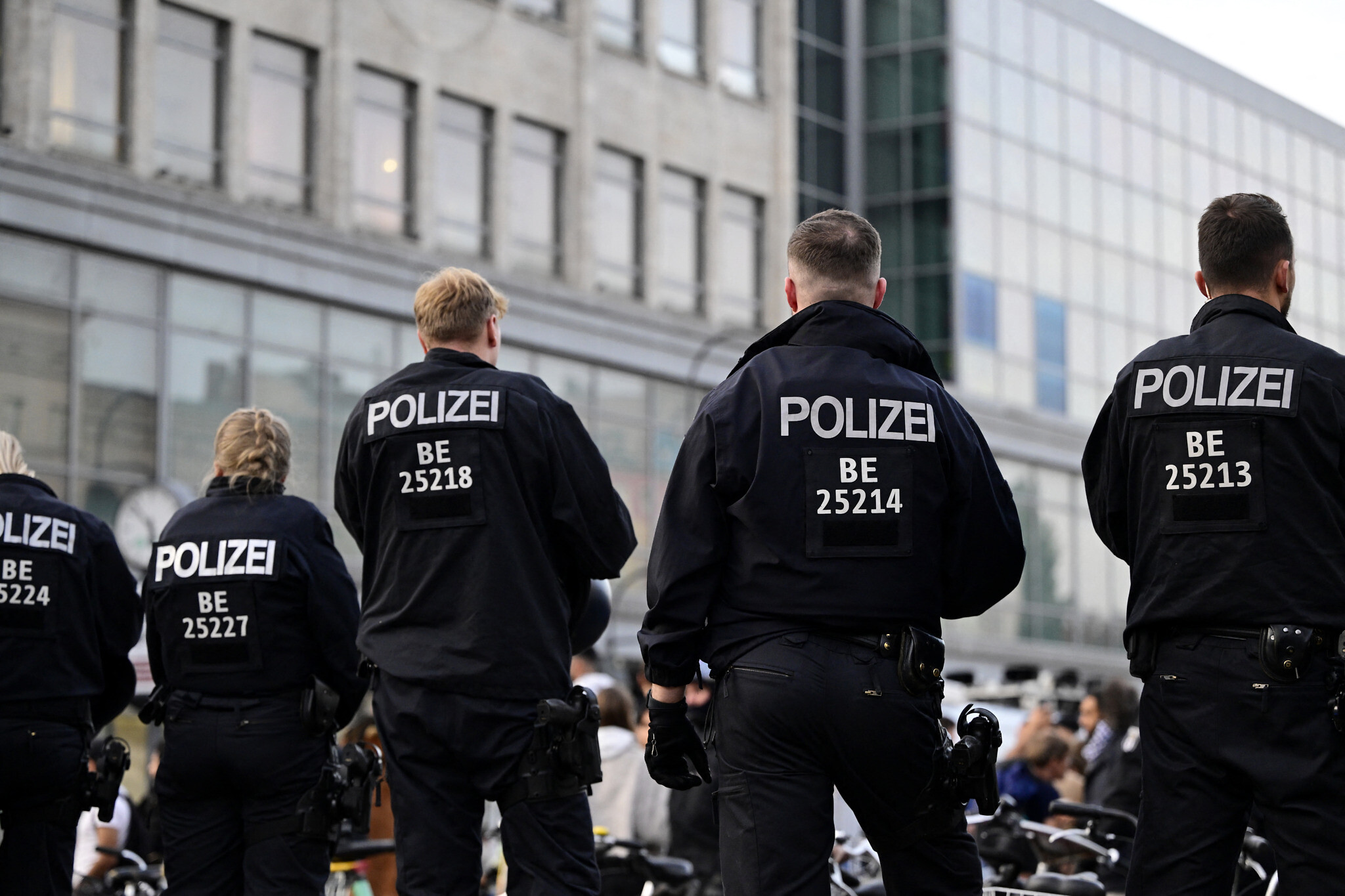
German authorities have arrested three teenagers aged 15 and 16 on suspicion of plotting a deadly Islamist terrorist attack in the western German state of North Rhine-Westphalia, prosecutors said on Friday.
The state’s Central Office for the Prosecution of Terrorism (ZenTer NRW) sought an arrest warrant for the teenagers over the Easter holiday.
They were suspected of plotting a terrorist attack in accordance with the aims and ideology of (extremist militia organisation) Islamic State.
The detained suspects are a 15-year-old girl from Dusseldorf, a 16-year-old girl from the Märkischer Kreis district and a 15-year-old boy from the Soest district, located about 100 kilometres to the east of Dusseldorf.
A fourth suspect has reportedly been identified in the south-western German state of Baden-Württemberg, and the local court there has issued an arrest warrant.
According to the investigators, the teenagers are accused of having agreed to commit murder and manslaughter.
This is in conjunction with the preparation of a serious act of violence endangering the state.
The presumption of innocence applied in all stages of the proceedings.
Security sources told newsmen that the young people had formed a chat group, but had not drawn up a concrete attack plan for a particular time and place.
However, sources said the cities of Dortmund, Dusseldorf and Cologne were discussed as targets, and attacks with knives and Molotov cocktails on people in churches or police officers in police stations had been considered.
The sources said authorities had also conducted searches as part of the investigation.
A machete and a dagger were seized in Dusseldorf, but no evidence of the construction of incendiary devices was discovered.
Sources said the father of the Dusseldorf suspect had already attracted attention from authorities in the past because he had allegedly collected donations for the Islamic State.
The investigators declined to reveal how the suspected terrorists were tracked down, but said that foreign intelligence agencies “did not play a role.”
Foreign
Putin Registers As Candidate For Russia’s Next Presidential Election
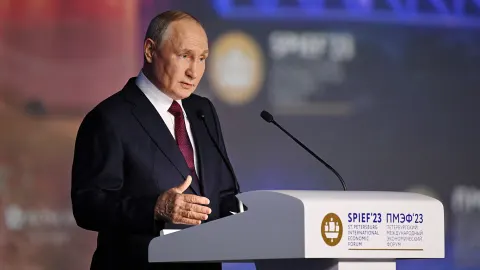
Russia on Monday officially recognised Vladimir Putin as a candidate for the presidential elections in March, a vote that he is all but certain to win.
The 71-year-old has led Russia since the turn of the century, winning four presidential ballots and briefly serving as prime minister in a system where opposition has become virtually non-existent.
The Central Election Commission said it had registered Putin, who nominated himself, as well as right-wing firebrand and Putin-loyalist Leonid Slutsky as candidates for the vote.
The election will be held over a three-day period from March 15 to 17, a move that Kremlin critics have argued makes guaranteeing transparency more difficult.
Following a controversial constitutional reform in 2020, Putin could stay in power until at least 2036.
Rights groups say that previous elections have been marred by irregularities and that independent observers are likely to be barred from monitoring the vote.
While Putin is not expected to face any real competition, liberal challenger Boris Nadezhdin has passed the threshold of signatures to be registered as a candidate.
However, it is still unclear if he will be allowed to run, and the Kremlin has said it does not consider him to be a serious rival.

